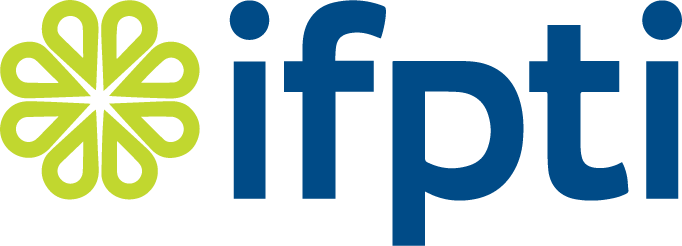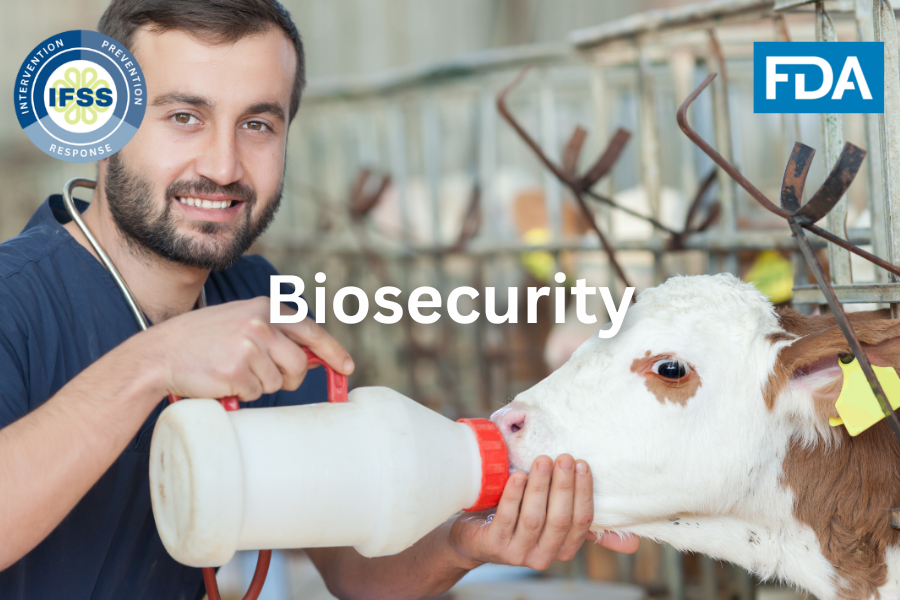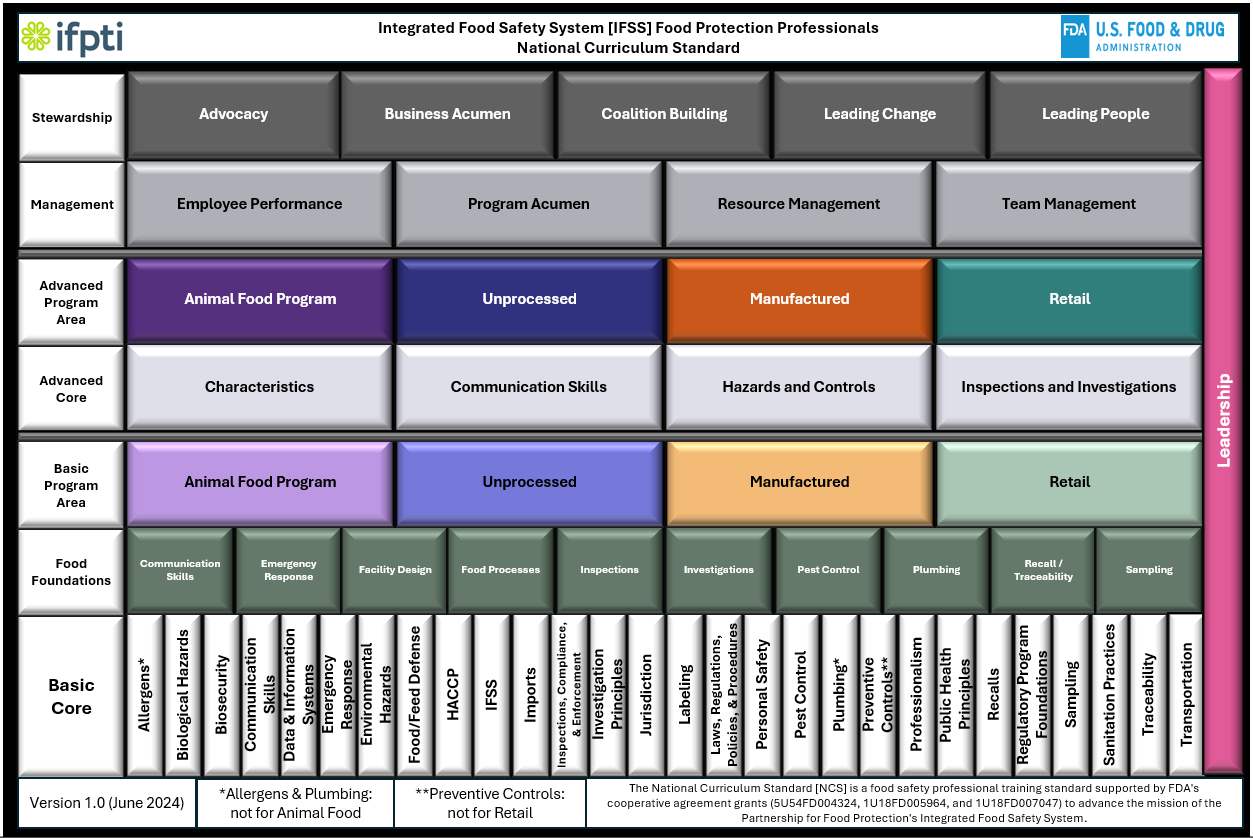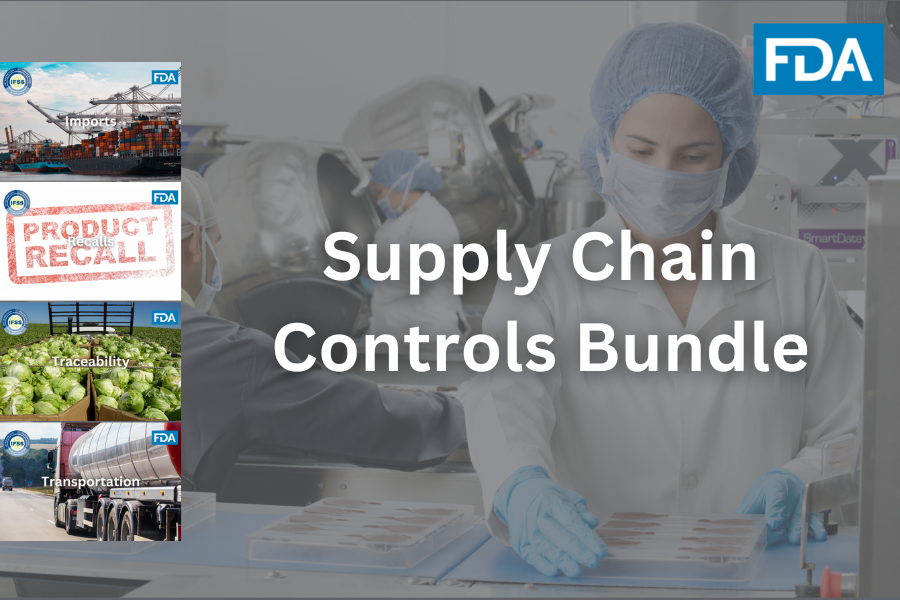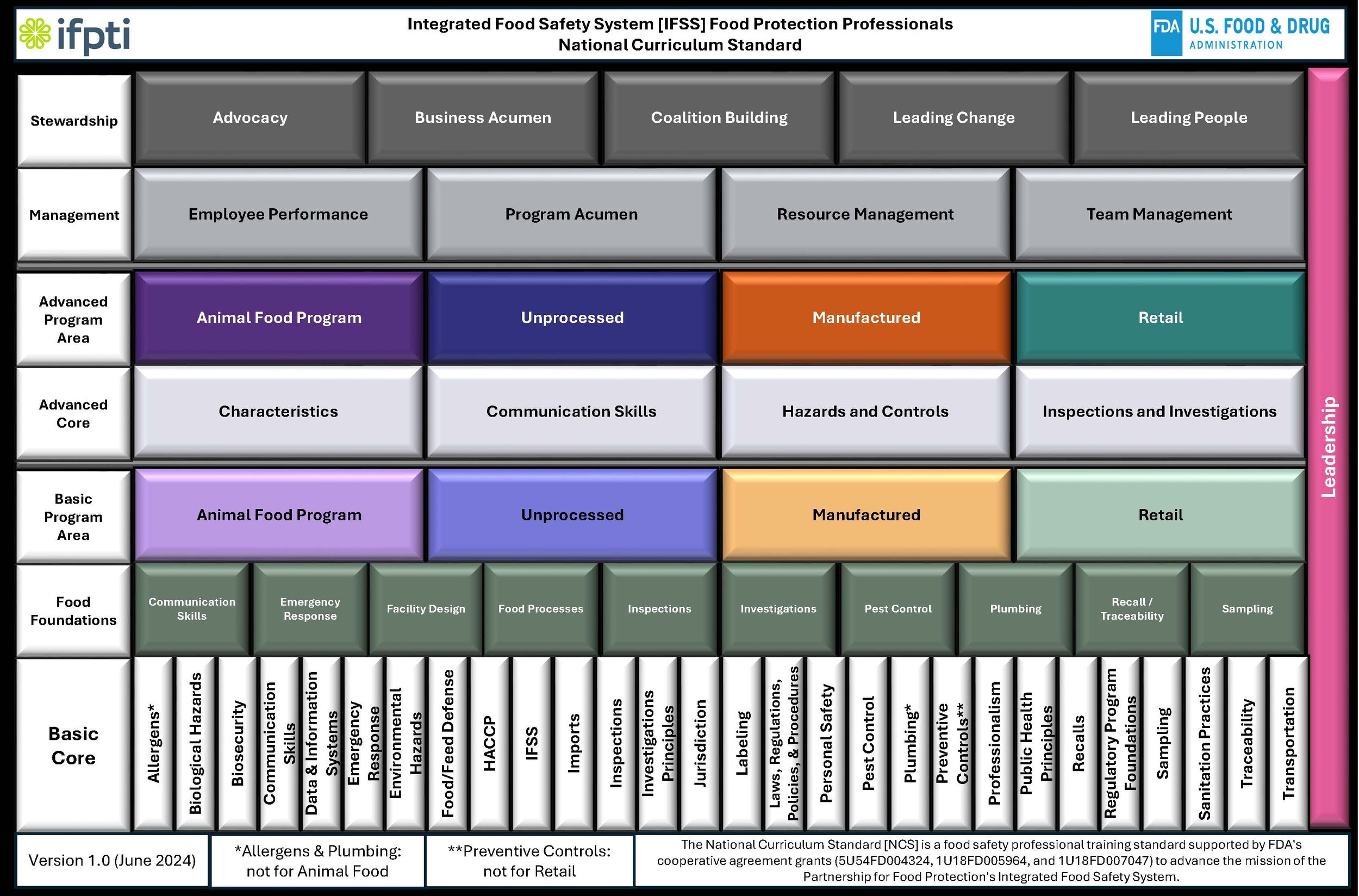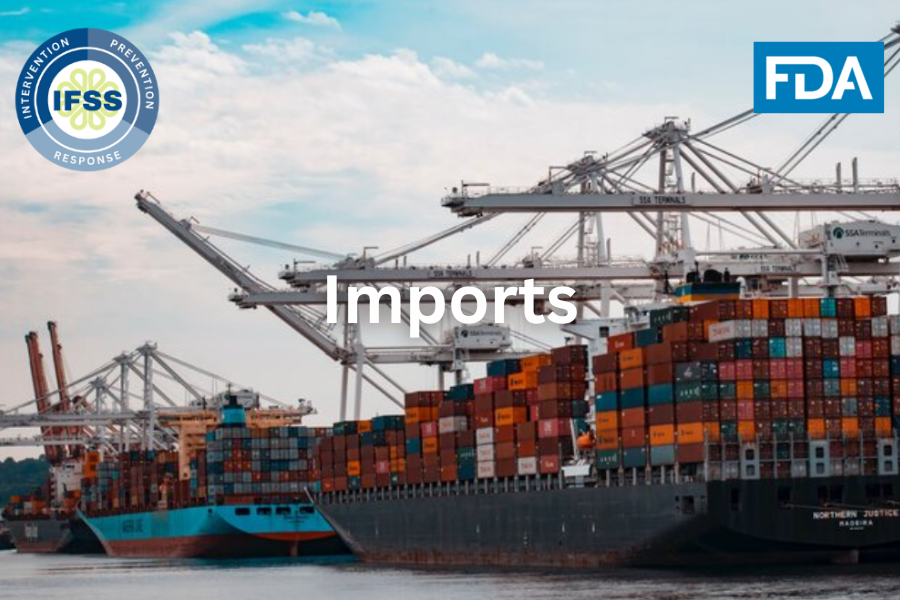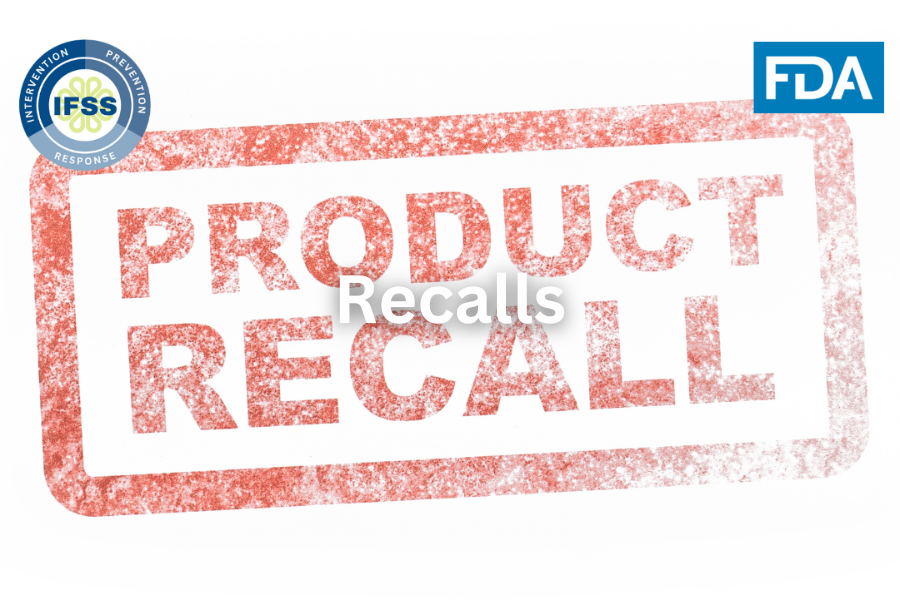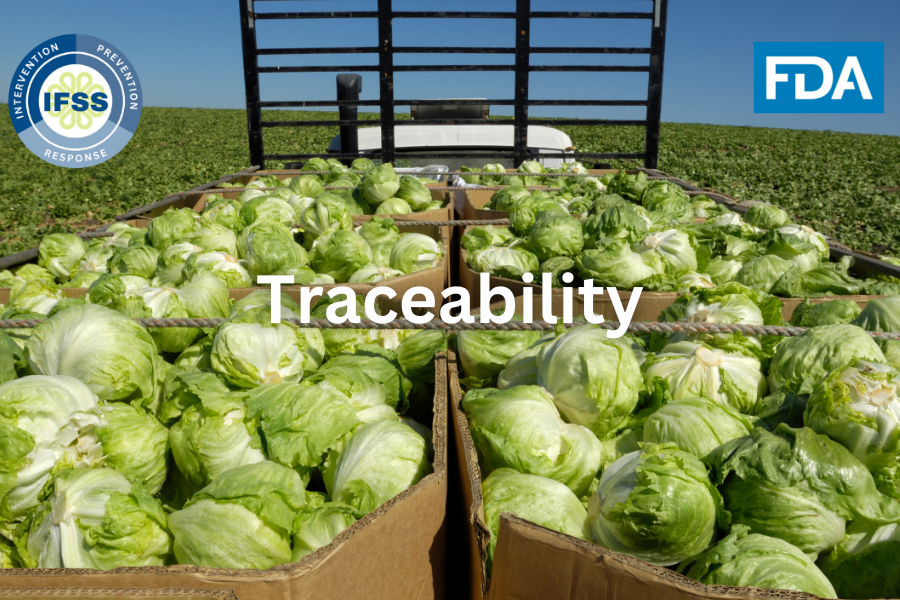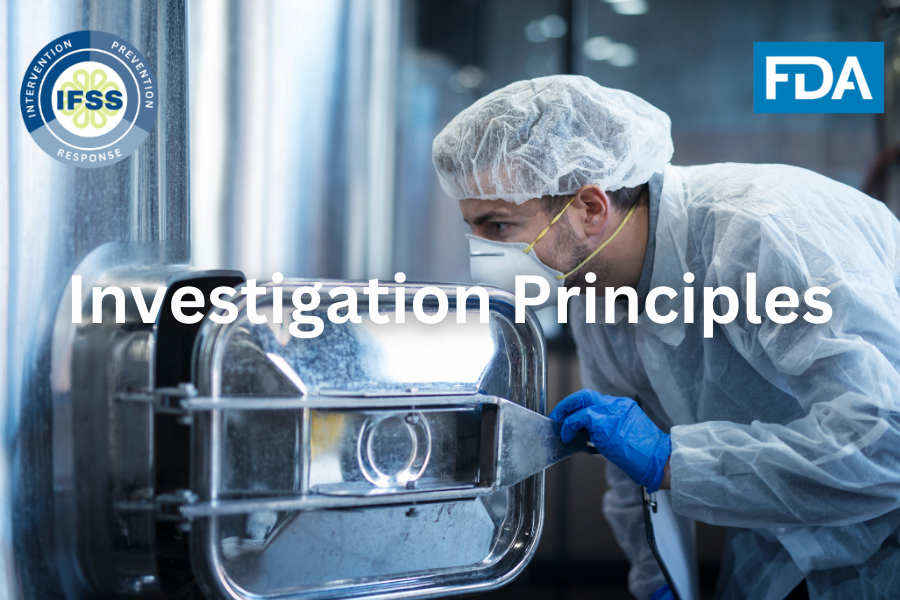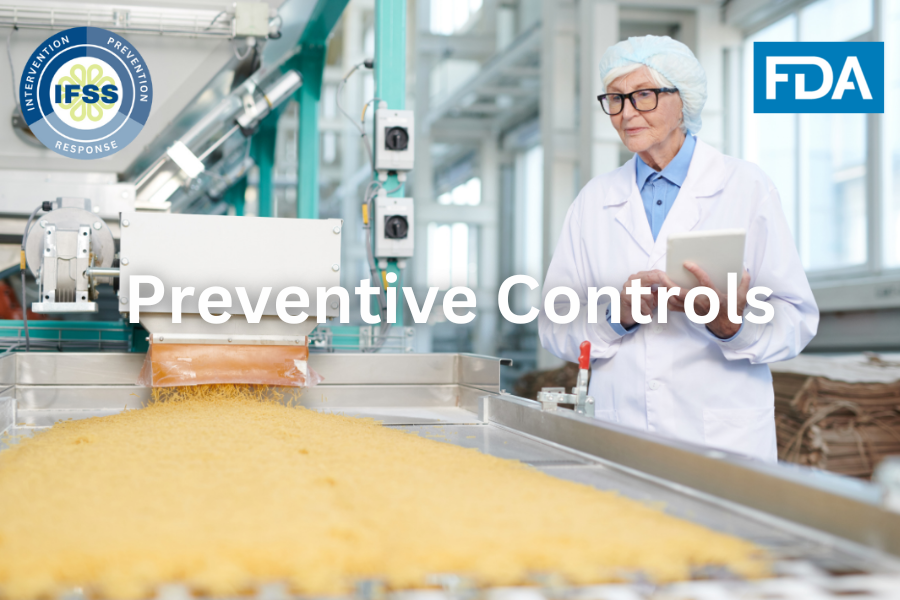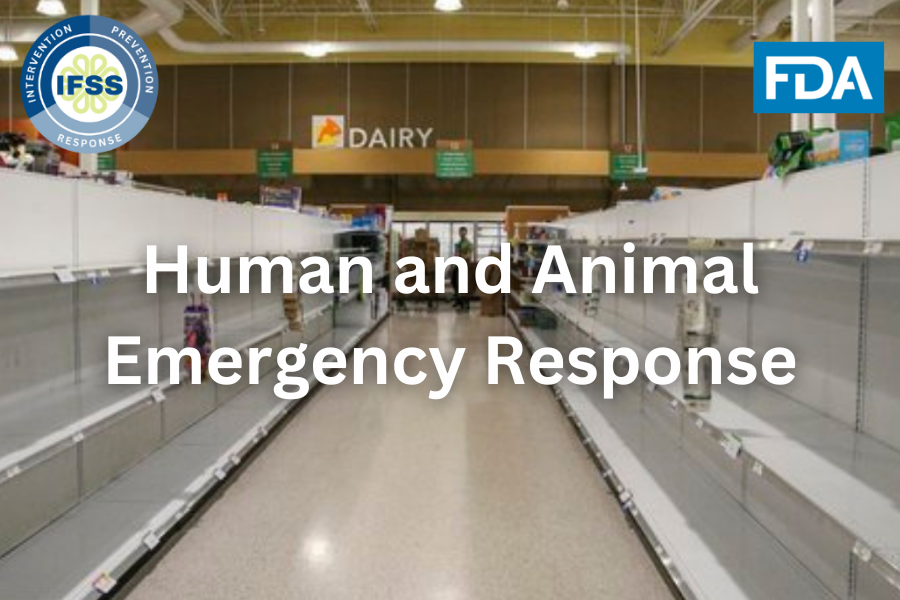Biosecurity
The IFSS Basic Level Biosecurity course provides introductory knowledge, skills, and abilities related to controlling disease transmission between people, animals and plants.
Goal: Participants will be able to identify the prevention or control of diseases related to the interactions of people with agricultural animals and plants.
Scope: Topics in this course include Foundations, Transmission, Prevention Methods, Biosecurity in Practice: Sanitation, and Policies.
Course Objectives
Foundations
Define relevant terminology,
Identify agencies with authority to enforce biosecurity regulations,
Identify basic elements of biosecurity plans used by operations,
Identify how food can get contaminated within a human or animal food facility,
Identify diseases specific to different types of facilities, and
Recognize the impact of biosecurity breaches.
Transmission
Recognize the concept of disease transmission,
Recognize routes of disease transmission,
Identify how humans can facilitate disease transmission,
Recognize how zoonotic diseases are transmitted, and
Identify how imported food, animals, and animal products may introduce pathogens into an animal or human production facility.
Prevention Methods
Identify strategies that control disease transmission,
Identify personal protective equipment (PPE) that controls disease transmission,
Recognize the importance of donning and doffing of PPE to control disease transmission,
Define quarantine, and
Recognize why a quarantine is important
Sanitation
Identify biosecurity pre-inspection planning activities,
Identify equipment that requires sanitizing after visiting an operation,
Identify effective cleaning, sanitizing, and disinfecting practices, and
Identify how sanitizers and disinfectants are chosen.
Integrated Food Safety System
Policies
Identify elements of regulatory agency biosecurity policies,
Identify elements of regulatory biosecurity plans, and
Identify elements of biosecurity plans implemented by facilities.
Duration
Unit 1: Foundations – 32 minutes
Unit 2: Transmission – 26 minutes
Unit 3: Prevention Methods – 29 minutes
Unit 4: Sanitation – 22 minutes
Unit 5: Policies – 10 minutes
Total Course time – 2 hours
The IFSS Basic Level Biosecurity course provides introductory knowledge, skills, and abilities related to controlling disease transmission between people, animals and plants.
Goal: Participants will be able to identify the prevention or control of diseases related to the interactions of people with agricultural animals and plants.
Scope: Topics in this course include Foundations, Transmission, Prevention Methods, Biosecurity in Practice: Sanitation, and Policies.
Course Objectives
Foundations
Define relevant terminology,
Identify agencies with authority to enforce biosecurity regulations,
Identify basic elements of biosecurity plans used by operations,
Identify how food can get contaminated within a human or animal food facility,
Identify diseases specific to different types of facilities, and
Recognize the impact of biosecurity breaches.
Transmission
Recognize the concept of disease transmission,
Recognize routes of disease transmission,
Identify how humans can facilitate disease transmission,
Recognize how zoonotic diseases are transmitted, and
Identify how imported food, animals, and animal products may introduce pathogens into an animal or human production facility.
Prevention Methods
Identify strategies that control disease transmission,
Identify personal protective equipment (PPE) that controls disease transmission,
Recognize the importance of donning and doffing of PPE to control disease transmission,
Define quarantine, and
Recognize why a quarantine is important
Sanitation
Identify biosecurity pre-inspection planning activities,
Identify equipment that requires sanitizing after visiting an operation,
Identify effective cleaning, sanitizing, and disinfecting practices, and
Identify how sanitizers and disinfectants are chosen.
Integrated Food Safety System
Policies
Identify elements of regulatory agency biosecurity policies,
Identify elements of regulatory biosecurity plans, and
Identify elements of biosecurity plans implemented by facilities.
Duration
Unit 1: Foundations – 32 minutes
Unit 2: Transmission – 26 minutes
Unit 3: Prevention Methods – 29 minutes
Unit 4: Sanitation – 22 minutes
Unit 5: Policies – 10 minutes
Total Course time – 2 hours
The IFSS Basic Level Biosecurity course provides introductory knowledge, skills, and abilities related to controlling disease transmission between people, animals and plants.
Goal: Participants will be able to identify the prevention or control of diseases related to the interactions of people with agricultural animals and plants.
Scope: Topics in this course include Foundations, Transmission, Prevention Methods, Biosecurity in Practice: Sanitation, and Policies.
Course Objectives
Foundations
Define relevant terminology,
Identify agencies with authority to enforce biosecurity regulations,
Identify basic elements of biosecurity plans used by operations,
Identify how food can get contaminated within a human or animal food facility,
Identify diseases specific to different types of facilities, and
Recognize the impact of biosecurity breaches.
Transmission
Recognize the concept of disease transmission,
Recognize routes of disease transmission,
Identify how humans can facilitate disease transmission,
Recognize how zoonotic diseases are transmitted, and
Identify how imported food, animals, and animal products may introduce pathogens into an animal or human production facility.
Prevention Methods
Identify strategies that control disease transmission,
Identify personal protective equipment (PPE) that controls disease transmission,
Recognize the importance of donning and doffing of PPE to control disease transmission,
Define quarantine, and
Recognize why a quarantine is important
Sanitation
Identify biosecurity pre-inspection planning activities,
Identify equipment that requires sanitizing after visiting an operation,
Identify effective cleaning, sanitizing, and disinfecting practices, and
Identify how sanitizers and disinfectants are chosen.
Integrated Food Safety System
Policies
Identify elements of regulatory agency biosecurity policies,
Identify elements of regulatory biosecurity plans, and
Identify elements of biosecurity plans implemented by facilities.
Duration
Unit 1: Foundations – 32 minutes
Unit 2: Transmission – 26 minutes
Unit 3: Prevention Methods – 29 minutes
Unit 4: Sanitation – 22 minutes
Unit 5: Policies – 10 minutes
Total Course time – 2 hours
